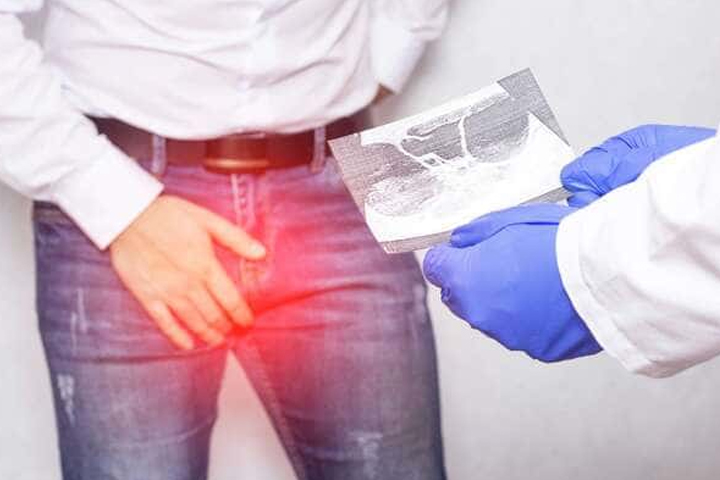The influence of hormones on our daily lives cannot be overstated. They are the reason behind the growth spurts during adolescence, the deepening of the voice, the development of secondary sexual characteristics, and the regulation of reproductive functions. But their impact goes beyond these visible changes – hormones are intricately linked to our energy levels, mood stability, bone health, and muscle mass, among many other aspects of daily living.
What Is Hypogonadism?
Hypogonadism is a medical condition characterised by inadequate production of sex hormones by the gonads, which are the testes in males and ovaries in females. These sex hormones, including testosterone in males and estrogen in females, are crucial for developing secondary sexual characteristics, maintaining reproductive functions, and influencing overall health.
Primary Hypogonadism
Also known as primary gonadal failure, this type occurs when there is a problem within the gonads themselves. In males, this could result from testicular injury, congenital defects, or genetic conditions such as Klinefelter syndrome. In females, primary hypogonadism can be caused by ovarian failure due to conditions like Turner syndrome or certain autoimmune disorders.
Causes of Primary Hypogonadism
- Congenital Conditions – Some individuals are born with genetic abnormalities that affect the development and function of the gonads. Turner syndrome in females and Klinefelter syndrome in males are genetic conditions that can cause primary hypogonadism.
- Testicular or Ovarian Injury – Physical trauma, radiation therapy, chemotherapy, or surgery affecting the testes or ovaries can reduce hormone production. This often leads to primary hypogonadism.
- Autoimmune Disorders – Certain autoimmune conditions, such as autoimmune oophoritis in females and autoimmune orchitis in males, can cause the immune system to target and damage the gonads, impairing their hormone-producing capacity.
- Age-Related Decline – As individuals age, the production of sex hormones naturally declines. This is commonly referred to as andropause in males, while in females, it’s associated with menopause.
Causes of Secondary Hypogonadism
- Hypothalamic or Pituitary Dysfunction – Disruptions in the hypothalamus or pituitary gland, which are responsible for releasing hormones that stimulate the gonads, can lead to secondary hypogonadism. Tumours, infections, and other conditions affecting these areas can interfere with hormone production.
- Certain Medications – Some medications, such as certain steroids, opioids, and medications used to treat cancer, can interfere with the endocrine system’s functioning, resulting in hypogonadism.
- Chronic Illnesses – Chronic illnesses like kidney disease, liver disease, and HIV/AIDS can affect hormone production and regulation, leading to hypogonadism.
- Stress and Weight – Chronic stress and excessive weight loss or gain can disrupt the hormonal balance, potentially causing hypogonadism.
- Underlying Medical Conditions – Conditions like hemochromatosis (excess iron in the blood), hyperprolactinemia (elevated levels of prolactin hormone), and certain genetic disorders can contribute to hypogonadism.
What Are Some Common Symptoms of Hypogonadism?
The symptoms of hypogonadism can vary based on factors such as age, sex, and the condition’s underlying cause. In males, common symptoms include:
- Reduced libido (sex drive)
- Erectile dysfunction
- Fatigue and decreased energy levels
- Decreased muscle mass and strength
- Infertility
- Changes in mood, including irritability and depression
- Loss of body and facial hair
- Osteoporosis (weakening of bones)
In females, symptoms may include:
- Irregular or absent menstrual periods
- Reduced libido
- Vaginal dryness
- Fatigue
- Changes in mood
- Decreased bone density
- Difficulty conceiving
How Is Hypogonadism Diagnosed?
Hypogonadism can manifest differently in individuals, and its symptoms can overlap with other conditions. A thorough evaluation is essential to diagnose and tailor treatment plans accurately.
Hormone Testing
Laboratory tests play a pivotal role in diagnosing hypogonadism. Blood tests are used to measure hormone levels and aid in differentiating between primary and secondary hypogonadism.
- Testosterone Levels – In males, measuring testosterone levels is a primary indicator. Low testosterone levels can indicate hypogonadism. For females, both testosterone and estrogen levels may be assessed.
- Gonadotropin Levels – Follicle-stimulating hormone (FSH) and luteinising hormone (LH) levels are evaluated. Elevated levels of these hormones in the presence of low sex hormone levels can indicate primary hypogonadism. In contrast, low or normal levels with low sex hormone levels can point to secondary hypogonadism.
- Prolactin Levels – Elevated prolactin levels could indicate underlying conditions affecting the pituitary gland.
Additional Testing
Depending on the findings from initial tests and the suspected cause of hypogonadism, further tests might be conducted, including:
- Imaging Studies – Ultrasound or MRI scans can help visualise the gonads, pituitary gland, and hypothalamus to identify structural abnormalities or tumours.
- Genetic Testing – Genetic testing may be recommended in cases of suspected congenital causes of hypogonadism.
- Bone Density Testing – Dual-energy X-ray absorptiometry (DXA) scans can assess bone density, which may be affected by hormonal imbalances.
Differential Diagnosis
It’s important to distinguish hypogonadism from other conditions that share similar symptoms, such as depression, thyroid disorders, and chronic illnesses. A careful evaluation helps rule out other potential causes.
Tracking Symptoms Over Time
Sometimes, healthcare providers might monitor symptoms and hormone levels over a while to establish a clear pattern and confirm the diagnosis.
What Are the Health Complications of an Untreated Hypogonadism
If left untreated, Hypogonadism can significantly impact various aspects of health and well-being. The disruption of hormonal balance can lead to a cascade of physiological and psychological complications that affect multiple systems within the body
Infertility
Hypogonadism can lead to infertility in both males and females due to inadequate production of sex hormones necessary for proper reproductive function. In males, low testosterone levels can result in reduced sperm production and impaired sperm quality, making conception difficult. In females, irregular or absent menstrual cycles and reduced estrogen levels can interfere with ovulation and conception.
Decreased Bone Density and Osteoporosis
Sex hormones, particularly estrogen, are crucial in maintaining bone health. Untreated hypogonadism can lead to decreased bone density and an increased risk of osteoporosis – a condition that is prone to fractures and is characterised by brittle and weak bone
Cardiovascular Health Risks
Low testosterone levels in males have been associated with an increased risk of cardiovascular issues such as heart disease, high blood pressure, and an unfavourable lipid profile. These risks highlight the interconnectedness between hormonal balance and cardiovascular health.
Muscle Mass and Strength Loss
Testosterone is essential for maintaining muscle mass and strength. Untreated hypogonadism can lead to muscle loss, reduced muscle strength, and increased susceptibility to muscle injuries.
Mood Disorders and Cognitive Function
Hormones play a role in regulating mood and cognitive function. Individuals with untreated hypogonadism may experience mood swings, irritability, anxiety, and depression. Cognitive function, including memory and concentration, can also be affected.
Metabolic Changes and Weight Gain
Hormonal imbalances can contribute to changes in metabolism, potentially leading to weight gain and an increased risk of obesity. This can further exacerbate the risk of metabolic disorders such as type 2 diabetes.
Sexual Dysfunction
Both males and females with untreated hypogonadism often experience sexual dysfunction, including reduced libido, difficulty achieving and maintaining erections (in males), and vaginal dryness and discomfort (in females).
Increased Risk of Fractures
The decreased bone density associated with untreated hypogonadism increases the risk of fractures, especially in older individuals.
Reduced Quality of Life
The physical, emotional, and psychological consequences of untreated hypogonadism can collectively reduce the overall quality of life. Fatigue, mood disturbances, body changes, and sexual difficulties can impact self-esteem, relationships, and general well-being.
Cognitive Function and Mental Health
Hormones influence cognitive function, and untreated hypogonadism can impact memory, concentration, and cognitive processing. Moreover, the emotional toll of living with untreated symptoms can contribute to mental health challenges.






